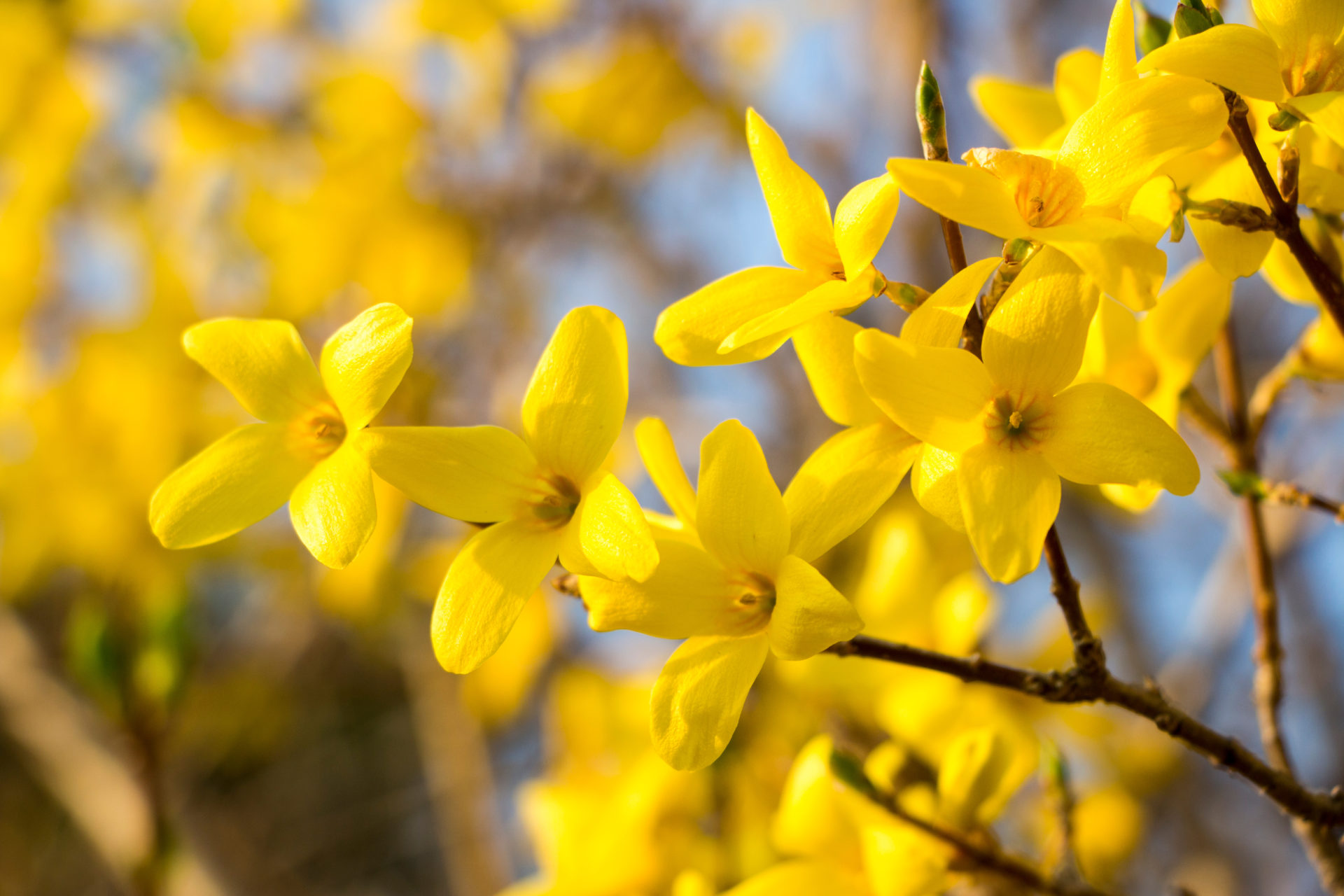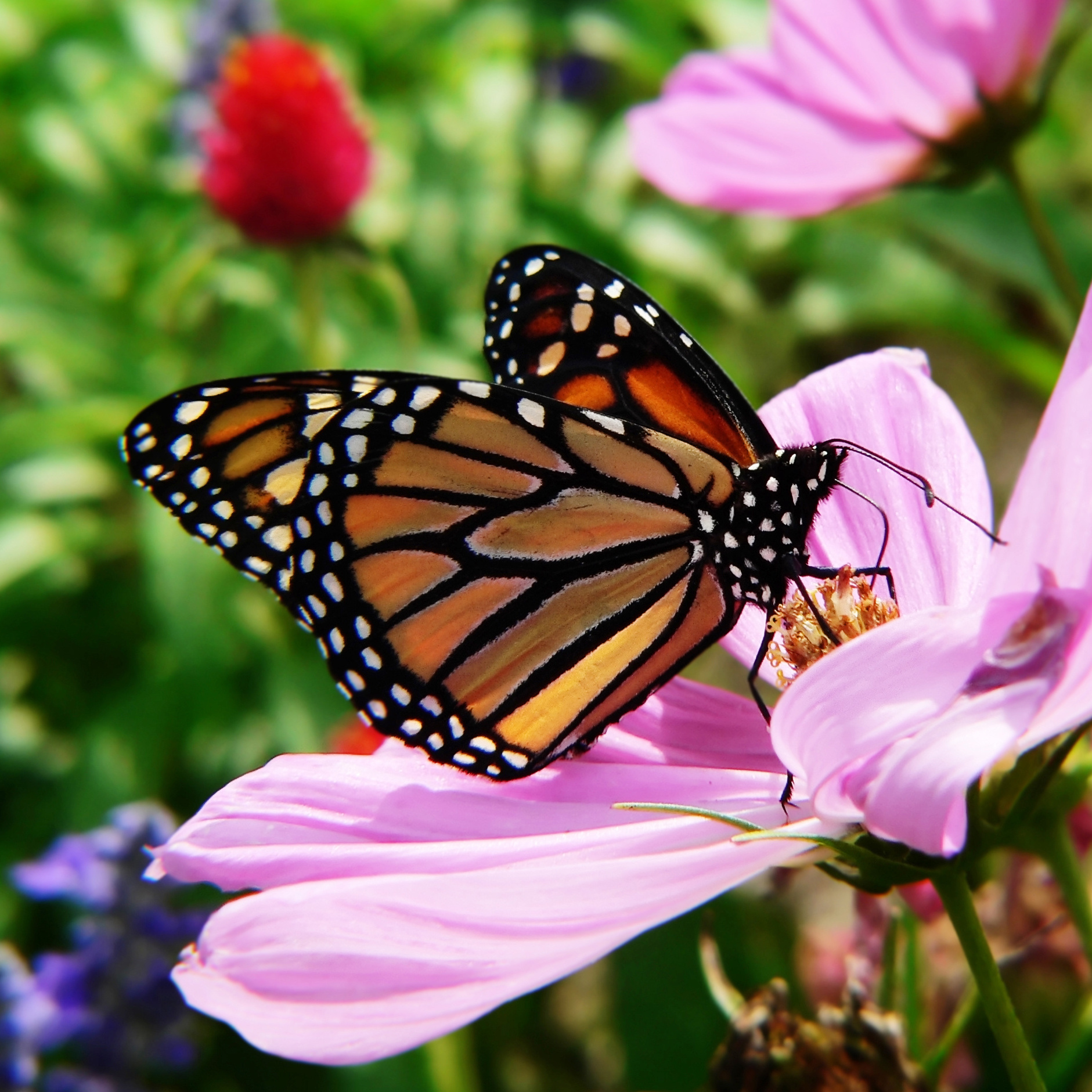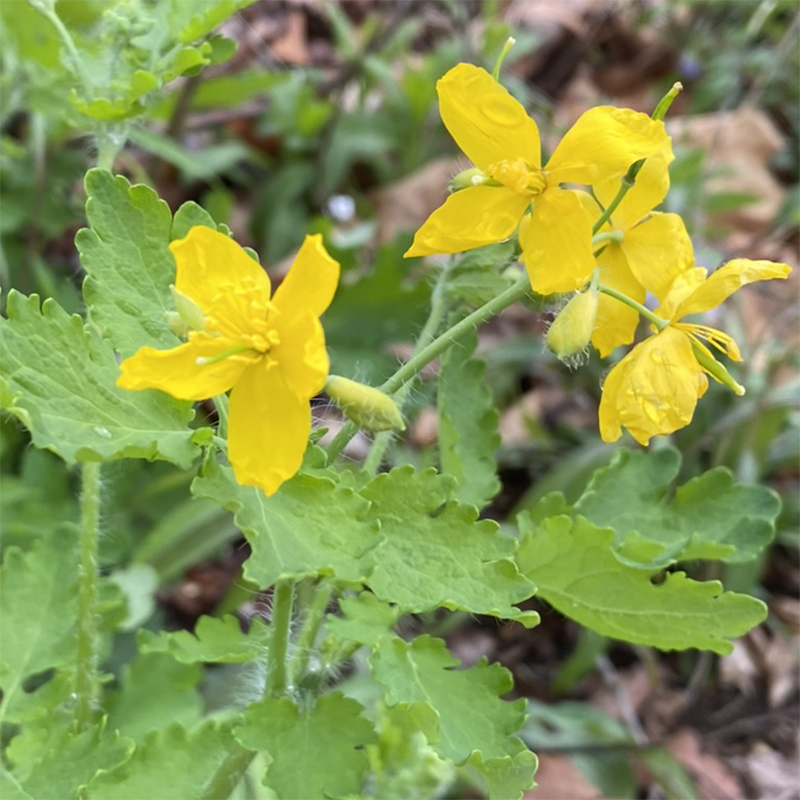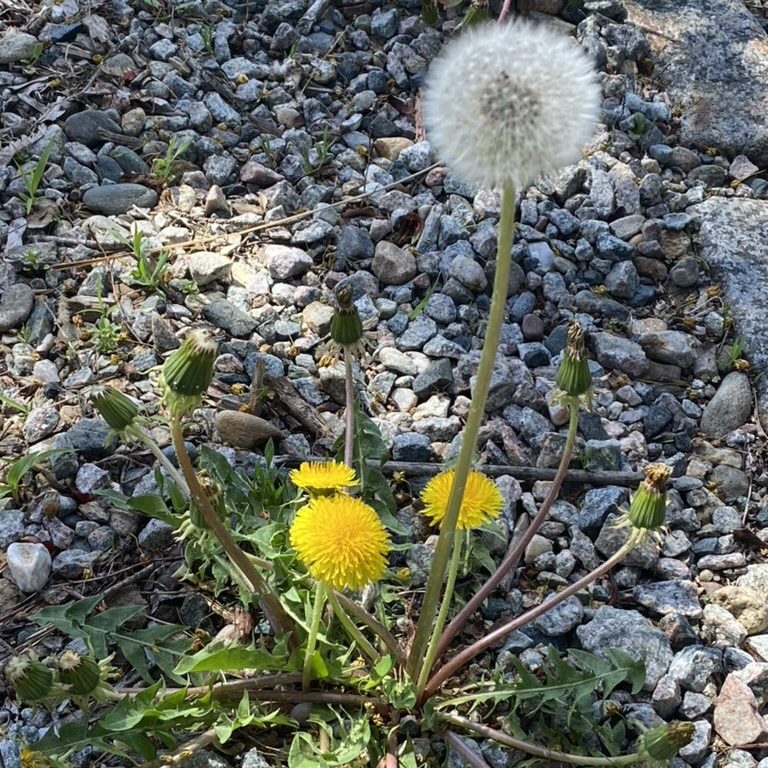
by R. Wayne Mezitt
What homeowner doesn’t recognize forsythia—that shockingly-bright beacon that bursts into bloom with those first mild temperatures every April!?
Among the easiest plants to grow, forsythia’s yellow, bell-like blooms are always the first to welcome spring in Southern New England. Its brilliant floral display is a welcomed inspiration in the otherwise-drab April landscape. No other hardy shrub can compete with the way it sparks-up the landscape, perfectly setting the stage for the profusion of color soon to follow as your garden awakens.
But so common has this familiar shrub become that people seem to discount forsythia’s true landscape value when planning a garden. One reason forsythia is underrated is the way it has been used: all too often we see forsythia incorrectly planted too close to walkways, structures or other plants. This causes a “crowded” effect, and necessitates severe pruning that deforms its natural shape and reduces the amount of flowering next spring. Properly sited, forsythia should be a prized feature in the garden.
Deer are reluctant to browse forsythia branches and few pests bother it. Minimal pruning helps assure reliable blooms and retain its natural form. Once established in the garden forsythia tolerates less-than-optimum conditions and even neglect (but try to avoid waterlogged soils). Late spring or early summer is the best time to cut-back overgrowing branches: next April’s flowers are set during summer in clusters along the older stems, so avoid heavy pruning late in the season. But don’t be afraid to cut a few branches in late winter—they are perfect for forcing into a colorful display in a vase in your home.
A large number of forsythia cultivars are available for the homeowner, ranging from fast-growing upright forms, weeping, spreading types, low-growing groundcovers and miniatures ideal for smaller gardens. You may want a hedge for screening a view, an attractive cascade on a steep banking, a low border along a pathway, an espalier against a wall, or a single specimen to accent a prominent area. All have attractive, clean, green foliage all summer. There are cultivars with variegated foliage, enhancing the appeal in the summer garden, and a few types even display colorful autumn foliage.
Forsythia is so versatile and such an easy plant to grow, and very economically priced, making it a great value for any garden. Every home should have one or more to enjoy this time of year, if only to demonstrate to viewers that winter has finally departed. Choosing the type that fits your needs, and then planting it with consideration for its growth habit and mature size, helps assure the most pleasing effects.







